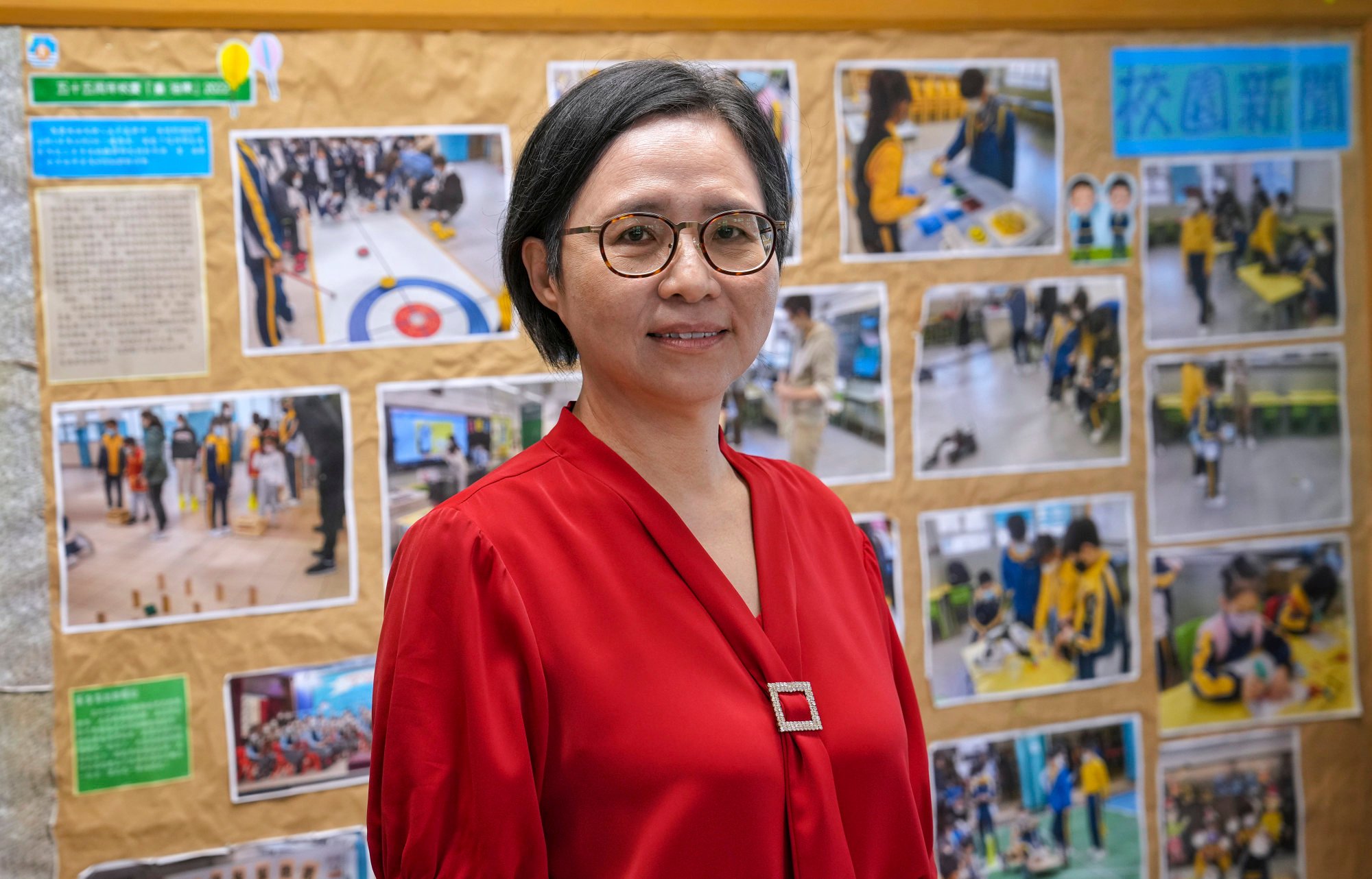
‘Drastic drop’ in Hong Kong parents seeking ‘door-knocking’ places for their children at popular primary schools
- Several parents waited outside Yaumati Catholic Primary School, but principal says this is a far cry from previous years
- More than 90 per cent of incoming Primary One pupils have secured a spot at one of their top three schools
Popular primary schools in Hong Kong have seen a drop in the number of parents unhappy with the city’s Primary One allocation system lining up to secure a spot for their children, as the percentage of incoming pupils who were assigned a place at their preferred institution hit a 15-year high.
Several parents waited outside Yaumati Catholic Primary School on Wednesday morning as it began accepting applications for “door-knocking” places, but the scene was a far cry from previous years when up to 300 would descend onto the premises, according to its principal.
“My staff and I are pretty shocked because it has never been this quiet,” Principal Lourdes Yu Pui-kam said. “This was entirely unexpected.”

Primary One places at public schools are allocated using a two-stage process, with the results of the first discretionary admission phase for the 2023-24 academic year announced in November and the second stage on Wednesday.
Parents unhappy with the placements have the last-ditch option of approaching their preferred schools directly – also known as “door-knocking” – a process that typically leads to long queues at school gates on results day.
But less dramatic scenes are expected this year as the government earlier revealed more than 90 per cent of incoming pupils had secured a spot at one of their top three schools, and that the number of door-knocking places would be reduced.
Principal Yu said the drastic drop in the number of parents opting for the last-ditch option could be attributed to declining birth rates and emigration, as well as high satisfaction with this year’s public allocation system.
But she added it was too early to reach conclusions as the school would continue to accept applications until June 9.
A parent, who only gave her surname as Tsui, said her daughter had already been granted a spot during the first discretionary phase, but she wanted to try her luck at Yaumati Catholic Primary School.
“We have heard many good things about this school, and our child’s kindergarten teacher highly recommended it,” she said, adding that she was planning on applying for door-knocking spots at five schools.

Tsui also said she was caught off guard when authorities announced they would cut the number of door-knocking places, but added that she did not want to put too much pressure on her daughter.
Chu Wai-lam, vice-chairman of the New Territories School Heads Association and headmaster of Fung Kai No 1 Primary School in Sheung Shui, said institutions in his district were facing a similar situation.
“I have spoken with my peers, and even those from the ‘hottest’ schools say they have received significantly fewer applicants this year,” he revealed, adding that apart from a decreasing school-aged population and high satisfaction rates as reasons, parents have also experienced a “mentality change” in recent years.
“I think an increasing number of people are beginning to question whether it is necessary to chase after so-called prestigious schools and realise all institutions have their merits,” he said.
“Especially after the pandemic, parents are placing more importance on their children’s health rather than putting them under pressure.”
Parents may not want to waste the effort since the government recently slashed the number of door-knocking slots, decreasing the success rate of the practice, Chu added.
“Why suffer all the stress and sleeplessness when a perfectly fine option has already been secured?” he said.
The Education Bureau earlier said the success rate for both allocation stages had reached 91.2 per cent this year – the highest since the 2009-10 school year, as the number of incoming Primary One children dropped to 43,755 from 48,080 in the previous year.
